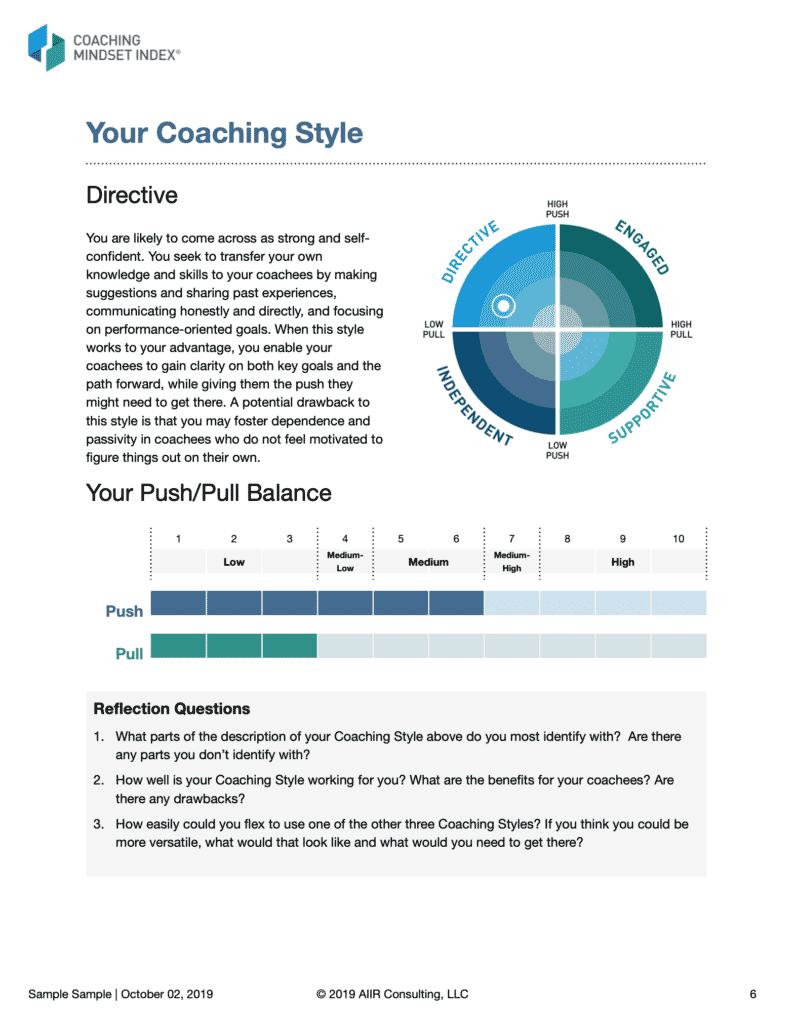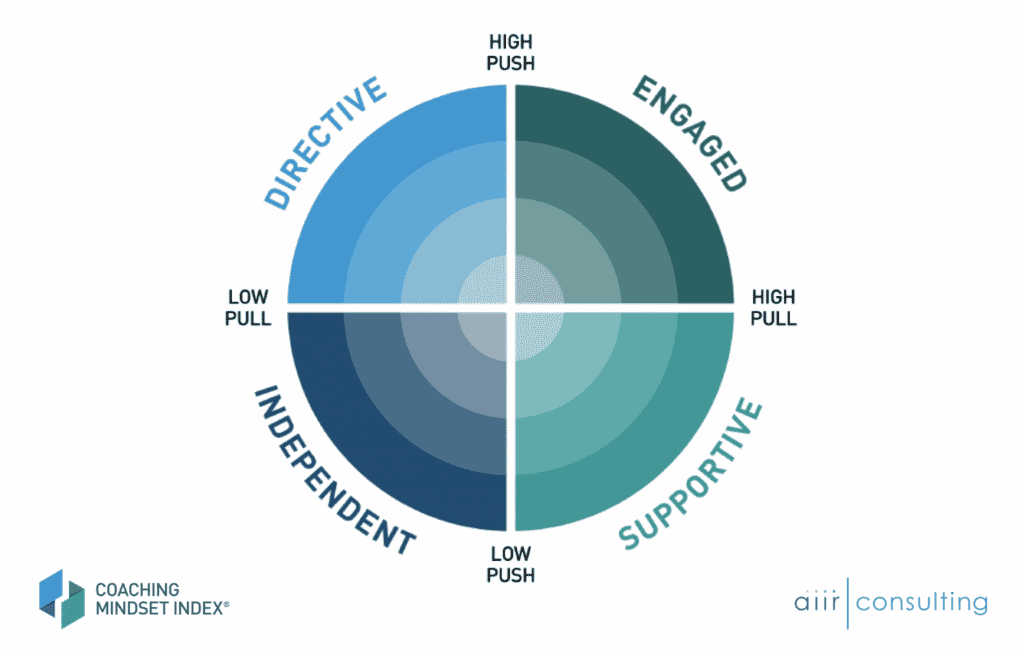The Coaching Mindset Index® Model
Coaching Is A Powerful Skill-Set, But It Doesn’t Always Come Naturally
Leaders today are increasingly asked to coach, but without training, often do not have the skills, strategies, knowledge, and techniques to deliver coaching effectively.
This is not only unproductive but can also be detrimental to employee performance.
Push & Pull
Coaching strategies can be understood in terms of a simple dichotomy: Push Strategies and Pull Strategies.
Push Strategies are consultative, using candid feedback, performance-focused goals, and personal experience to create clarity and direction.
Pull Strategies use a counseling approach, becoming a growth partner by focusing on developmental goals, asking insightful questions, and giving compassionate feedback.
Coaching With Versatility
Coaching is contextual. The effectiveness of certain behaviors may change depending on needs, their goals, their organizational context, your relationship, and numerous other factors. The best coach is versatile and can adapt their approach to coaching given the context.
The CMI helps your leaders understand their natural coaching style and invites them to evaluate where that works well and where they may need to flex their style.
As seen in the model above, every leader gravitates toward a natural style of coaching, defined by their unique blend of preferred strategies. We’ve identified four coaching styles: Independent (low push/low pull), Supportive (high push/low pull), Directive (low pull/high push), and Engaged (high push/high pull).
3 Coaching Foundations
Our research has identified the three primary components of every coaching interaction, which we call Coaching Foundations.
Sharing Feedback
Providing information and observations about another’s performance or behavior
Setting Goals
Identifying and consistently monitoring progress toward clear, actionable goals
Finding Solutions
Exploring and implementing productive approaches to challenges and opportunities
6 Coaching Strategies
Each Coaching Foundation has an associated Push Strategy and Pull Strategy.
Candor is the practice of using honesty and directness when providing feedback, especially difficult or potentially painful feedback.
Compassion is the practice of using sensitivity and diplomacy when sharing feedback to protect the esteem and well-being of coachees.
Performance is the practice of motivating coachees to identify and achieve ambitious and measurable results in their work.
Development is the practice of encouraging coachees to identify and pursue experiences, roles, and responsibilities that support their aspirations.
Advocacy is the practice of offering solutions to coachees by sharing ideas, past experience, and expertise.
Inquiry is the practice of helping coachees to solve their own problems by demonstrating curiosity, asking open-ended questions, and listening deeply.
Do your leaders know how to flex their coaching style?
Many leaders have a unique style that they have developed over the course of their careers. What they may not know is whether that style is truly serving them in their current role.
Our research shows that, by starting with self-awareness, leaders can become more conscious of their style and learn how and when to use alternate strategies.





